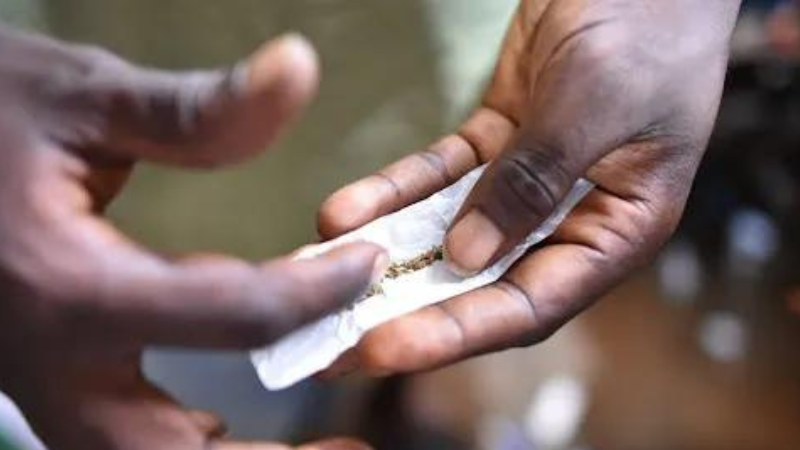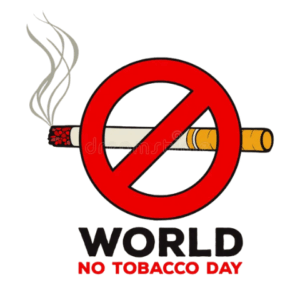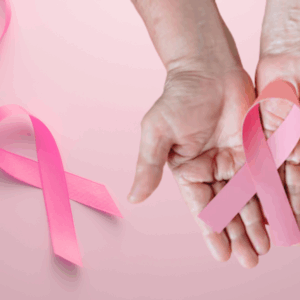The Gambia is currently experiencing an epidemic of drug abuse among adolescents, which has reached an all-time high. Many young people are being exposed to drugs for the first time, with most of them being in middle or high school. The Drug Law Enforcement Agency of the Gambia (DLEAG) has expressed concern about the use of a new illicit drug locally referred to as ‘Kush’. In early February 2024, the Epidemiology and Disease Control (EDC) Programme was alerted to an increase in suspected drug and substance abuse cases. The emergence of the drug called “Kush” has caused significant problems among the youth in the Gambia. This drug is named after Gina Bass, the fastest female sprinter in the Gambia, by its users and dealers due to its fast-acting nature.
The use of Kush reportedly started in Sierra Leone, where it is estimated to cause around a dozen deaths each week and lead to the hospitalization of thousands. The spread of Kush has now caused a public health crisis across West Africa, with users facing severe health problems, including brain disorders, self-harm, and addiction. The addictive nature of the drug leads to dependency, often leading individuals to engage in prostitution and other criminal activities to support their addiction. The drug, taken mostly by men aged 18 to 25, causes people to fall asleep while walking, to fall over, to bang their heads against hard surfaces, and to walk into moving traffic. The composition of Kush is considered dangerous for consumption. According to Anglia Ruskin University, Kush involves the mixing of cannabis with potent opioids such as fentanyl and tramadol. The addition of formaldehyde and ground human bones increases its toxicity, escalating the risks associated with its use. The excessive potency of this drug, surpassing that of traditional marijuana and hashish, has resulted in widespread addiction among young people. This has driven them toward engaging in criminal activities to sustain their habits.
In The Gambia, a National Taskforce for Drug and Substance Abuse called “KUSH” was established to address the issue. The task force reported a 20% increase in new clinical cases, with nineteen cases reported from health facilities within three weeks, bringing the total to 113 cases. The recorded case fatality rate was almost 10%. The majority of the cases were male, aged between 14 and 23 years. The most common symptoms presented by the cases were restlessness, swollen tongue and lips, drooling saliva, and body pain.
Over the past few days, multiple media outlets have reported on the increasing number of young Gambians dying due to drug use, particularly the popular “Kush” drug. A doctor at the Edward Francis Small Teaching Hospital disclosed that they had received eight cases related to Kush use within a week, and unfortunately, two of the individuals had passed away. Shockingly, many young people under the age of 20 have died after consuming Kush. A nurse revealed, “The victim’s uncle mentioned that this wasn’t the first time he used Kush. The last time, he lost control of his bodily functions. He passed away last night before reaching our facility.” The doctor further added, “Surprisingly, the victims are not only young men but also young women. It’s distressing to witness individuals struggling as others try to forcibly open their mouths or resort to extreme measures like stitching their tongues to their lips.”
Drug usage is commonly acknowledged as a major source of problems for young Gambians. Since young people might contribute to violent drug issues and conflicts in the wrong situations, today’s youth represent our most valuable human resource for achieving sustainable human development. Concerning possible consequences on the health of teenagers, the pattern of drug use for recreational purposes is also evolving. Young people frequently deny the risks associated with drug use, and their optimism may be based more on wishful thinking than on a critical evaluation of the available data. Drugs and tobacco are causing more teenage deaths than diseases like malaria, accidents, and violence. Drug abuse is devastating the lives of our future generations. The number of young people using drugs is disturbing, as is the violent behavior of young Gambians under the influence of drugs. Research indicates a connection, or at least a relationship, between drug problems among young people and crime and conflict: drug use contributes to or exacerbates existing tensions and conflicts or is often a direct cause of violent behavior.
Substance use disorders amongst adolescents have long-term adverse health effects. Adolescent substance users suffer risks and consequences on the psychological, sociocultural, or behavioral levels that may manifest physiologically. Drug-using students are more prone to commit crimes, including bullying and violent behavior. It has also been connected to various mental conditions, depending on the substance used. On the other hand, it has been linked to social disorder, abnormal behavior, and association with hostile groups.
As its effects reach our youth, Gambia’s current generation is at high stake for the risk associated with the abuse of drugs like Kush. Even though the issue of substance abuse is complicated and pervasive, various stakeholders like the Ministry of Health, community leaders, and educational institutions have access to a wealth of evidence-based data that can assist them in adopting interventions that can lower rates of teenage substance misuse. It is the need of the hour to give serious consideration to measures like creating awareness, counseling, student guidance cells, positive parenting, etc., across the country. It will take time to change this substance misuse behavior, but the more effort we put into it, the greater the reward we will reap.
About the Author: Kebba Omar Cham is MPH Scholar at Edward & Cynthia Institute of Public Health – Advanced Technical Cooperation Center with Yenepoya ( DU).
Disclaimer: Views expressed are the author’s own. Edward & Cynthia Institute of Public Health or Yenepoya (Deemed to be University) are not responsible for contents or opinions reflected in this article.

Cham Kebba Omar
-
Cham Kebba Omar#molongui-disabled-link
-
Cham Kebba Omar#molongui-disabled-link




